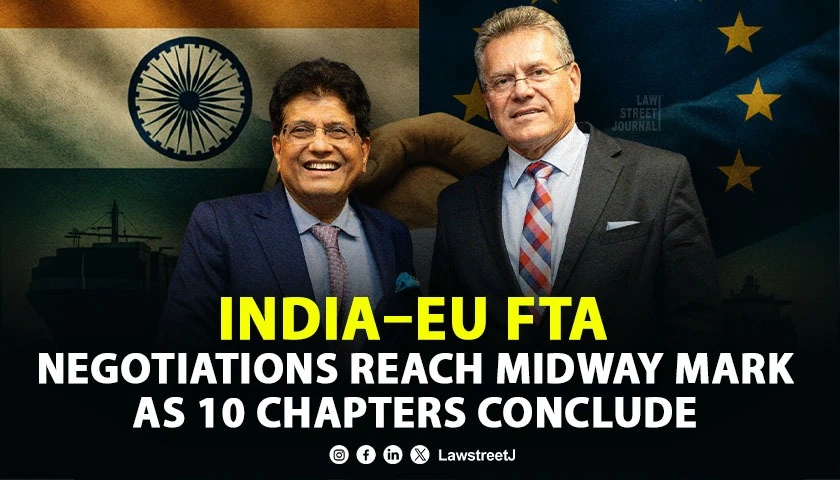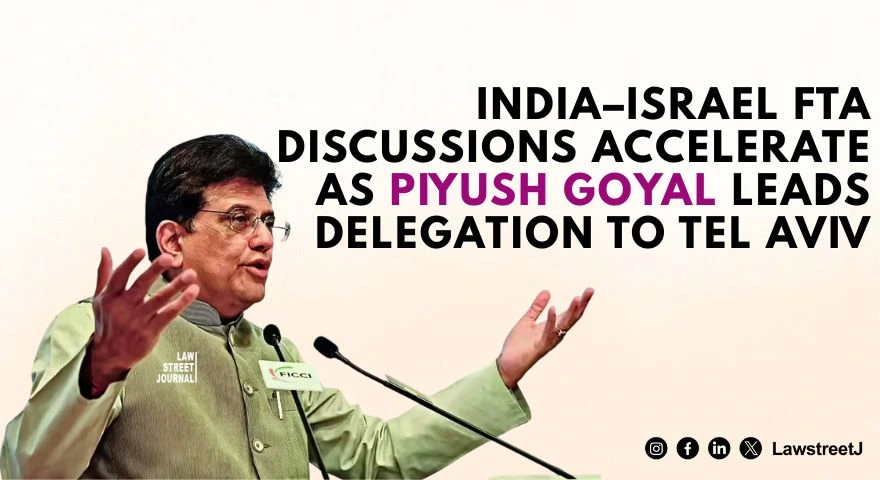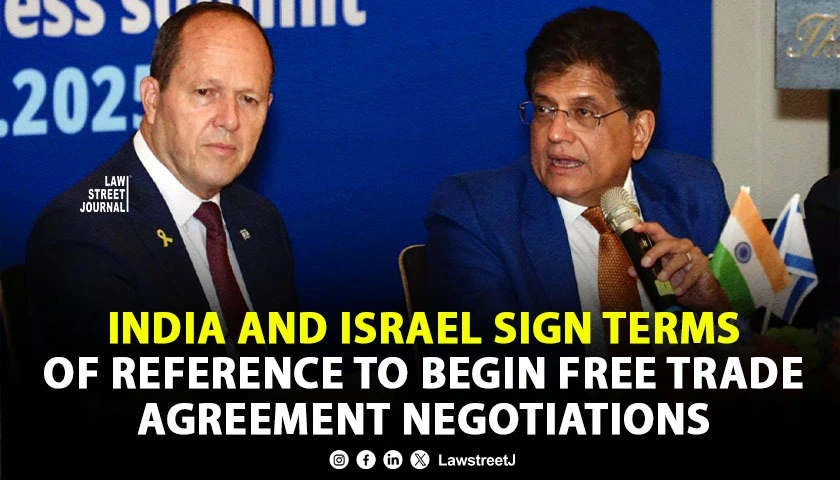New Delhi: Union Commerce and Industry Minister Piyush Goyal has announced that talks on the India–European Union Free Trade Agreement (FTA) have crossed a major threshold, with 10 of the 20 chapters now finalized and several others nearing consensus.
Fresh from a three-nation tour of Brussels, Berlin, and Geneva, the minister said both sides are working toward a fair and legally consistent pact rather than racing against time. Speaking to reporters, Goyal described the progress as a “turning point” in one of India’s most comprehensive trade negotiations in recent years. The FTA, relaunched in June 2022 after an almost decade-long pause, aims to establish a modern framework covering trade in goods and services, investment, intellectual property, and sustainable development.
The ongoing discussions are being conducted within the legal structure of the World Trade Organization (WTO) and are aligned with India’s Foreign Trade Policy and the EU’s Common Commercial Policy. While both sides had earlier targeted end-2025 to conclude the agreement—following an understanding between Prime Minister Narendra Modi and European Commission President Ursula von der Leyen—Goyal emphasized that “a balanced and precise agreement matters more than a rushed one.”
Chapters Concluded and Areas Under Negotiation
According to officials, the completed chapters address market access for goods, rules of origin, customs procedures, technical barriers to trade (TBT), and sanitary and phytosanitary measures (SPS). These chapters play a crucial role in simplifying documentation, easing customs processes, and reducing tariff and non-tariff barriers.
Sensitive sectors—including steel, automobiles, and digital trade—remain under negotiation. These areas involve complex issues such as anti-dumping provisions, data protection under the EU’s General Data Protection Regulation (GDPR), and investment protection mechanisms. India is advocating safeguards for domestic industries while ensuring compliance with international standards, whereas the EU continues to push for stronger commitments on environmental protections, labor standards, and climate-related provisions. Indian officials are reviewing these within national legal and regulatory frameworks to preserve sovereign policy space.
Next Phase: Services, Investment, and Dispute Resolution
The upcoming rounds will focus on services, investment facilitation, and dispute settlement—areas requiring detailed legal scrutiny. These chapters involve key topics such as cross-border data flows, financial services regulation, and arbitration mechanisms.
Legal experts from the Ministry of Commerce, the Ministry of Law and Justice, and external trade law teams are jointly vetting draft texts to ensure legal consistency and enforceability under Indian law. The EU Trade Commissioner is expected to visit India in November 2025 for further discussions, industry consultations, and preparation for legal scrubbing of the draft agreement.
Once negotiations conclude, the FTA will undergo ratification by the Indian Parliament and approval by the European Parliament. Bilateral trade between the two partners reached €120 billion in 2024, and the FTA is expected to expand cooperation in areas including digital governance, IP enforcement, and sustainability frameworks.
Historical Context and Strategic Outlook
Negotiations first began in 2007 but stalled in 2013 due to disagreements over tariffs, services access, and regulatory issues. Talks resumed in 2022 amid changing geopolitical dynamics and global supply-chain realignments. The EU remains one of India’s largest export destinations—especially for pharmaceuticals, textiles, and engineering goods—while India imports machinery, transport equipment, and chemicals from the bloc.
During his recent European engagements, Goyal highlighted issues related to standard certifications, conformity assessments, and market entry requirements. He reiterated that the agreement must reflect reciprocity, mutual respect, and transparency.
With half of the chapters concluded and several nearing closure, both sides are optimistic about finalizing the long-pending agreement within the coming year, marking a crucial milestone in India–EU economic relations.









